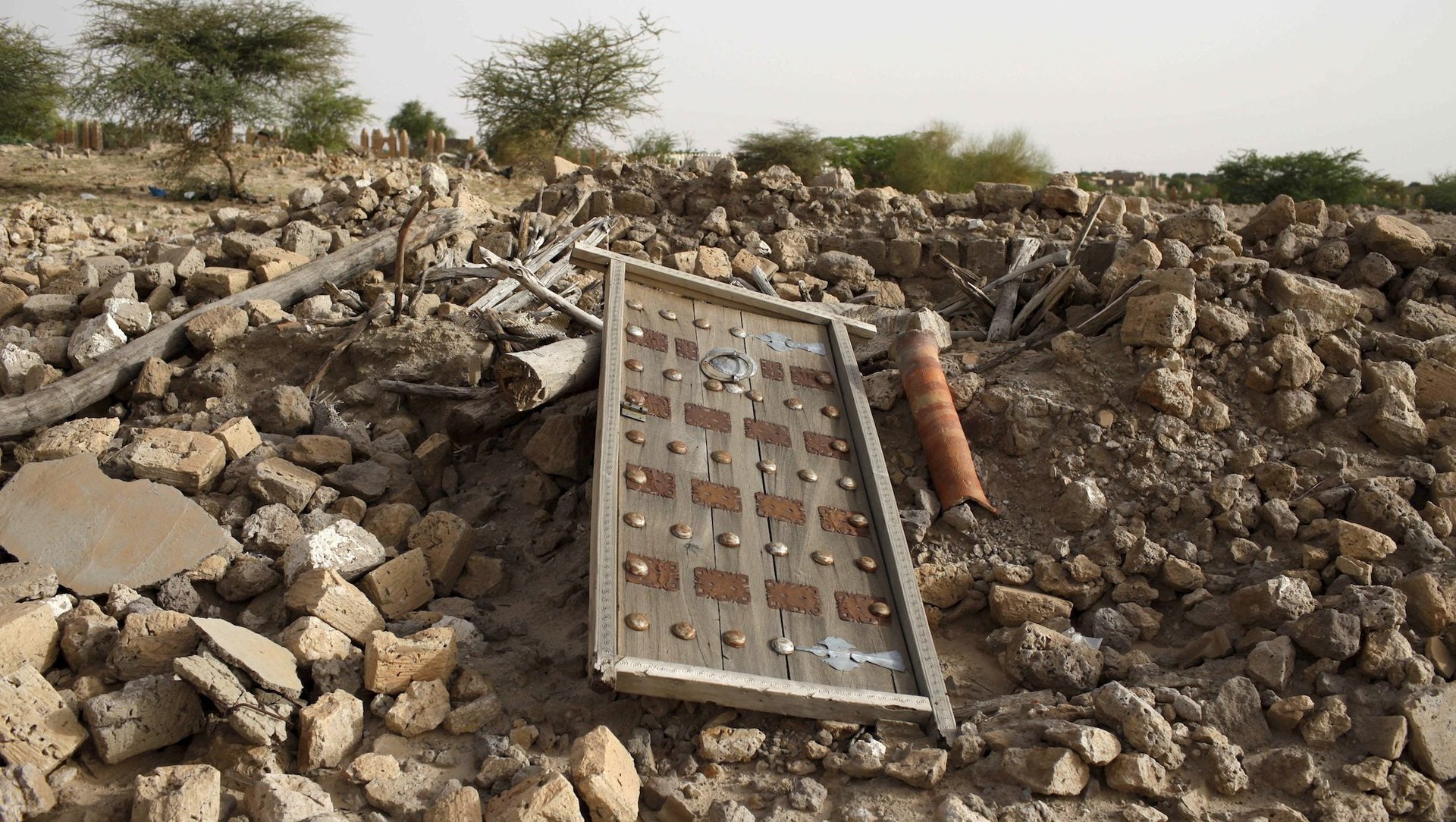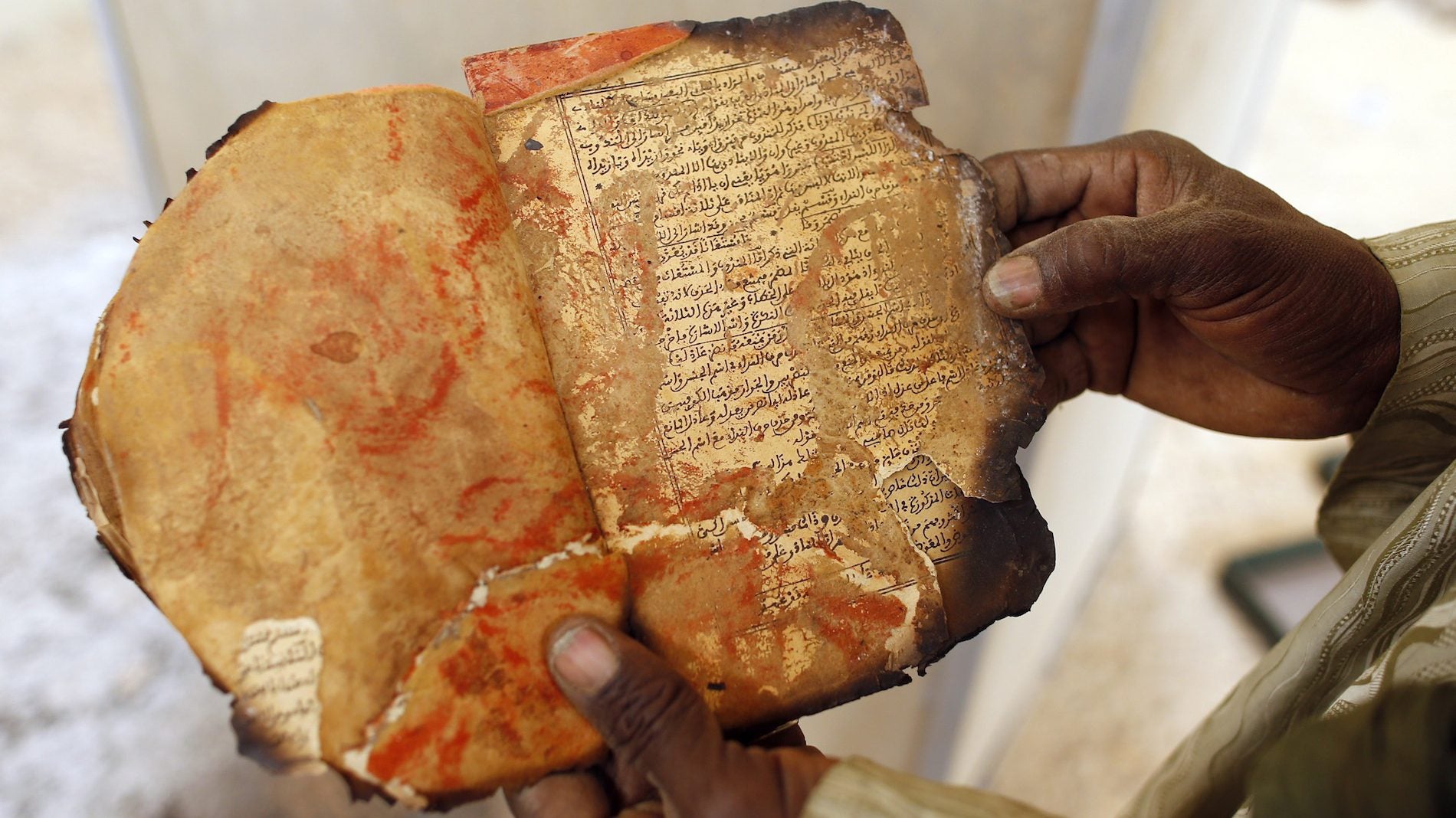Destroying history is now being charged as a war crime
An Islamist fighter has pleaded guilty in the Hague for destroying parts of the fabled West African trading city of Timbuktu, in the International Criminal Court’s first case based on the destruction of cultural artifacts.


An Islamist fighter has pleaded guilty in the Hague for destroying parts of the fabled West African trading city of Timbuktu, in the International Criminal Court’s first case based on the destruction of cultural artifacts.
Ahmad al-Faqi al-Mahdi has admitted today (Aug 22) to razing all but two of the city’s 16 mausoleums as well as a mosque dating back to 1400 during a raid by Islamist radicals in 2012. Ahmad told the tribunal in the Netherlands that he regretted “the damage [his] actions have caused.”
In March, Ahmad was charged for “war crimes of intentionally directing attacks against historic monuments and buildings dedicated to religion,” according to the court. “Deliberate attacks on cultural property have become actual weapons of war,” ICC prosecutor Fatou Bensouda said during proceedings today.
Timbuktu, with more than 1,000 years of history in northern Mali, was a former trading hub and center of Islamic scholarship in the 15th and 16th centuries. It’s been invoked by Western writers from DH Lawrence to Agatha Christie as a mythical and remote land of mystery and wealth. In the 1980s, it was declared a UNESCO world heritage site.

The destruction of cultural heritage can be prosecuted as a war crime under the Rome Statute of 1998 that established the ICC. The court’s recent enforcement of the statute could set a precedent for similar cases like ISIL’s destruction of the ancient city of Palmyra last year. (Because Syria is not a signatory to the statute, the ICC can only investigate under a request from Syria or referral from the UN Security Council).
The case also marks the first time an ICC defendant has pleaded guilty. The trial, likely to be over within a week because of Ahmad’s guilty plea, should lead to one of the ICC prosecutors’ few wins.
Of more than 30 indictments at the ICC, only three defendants have been convicted—Thomas Lubanga Dyilo, Germain Katanga, and most recently Jean-Pierre Bemba Gombo, former politicians and rebel leaders from Democratic Republic of Congo. The ICC’s inconsistent track record has invited accusations that the court’s limited authority renders it ineffective.
The ICC posted photos and video of Mahdi’s admission of guilt on social media today. He faces up to 30 years in prison.